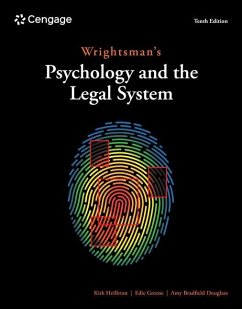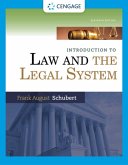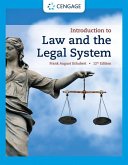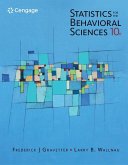Does trauma spark brazen acts? Do eyewitnesses offer accurate reports? Can jurors distinguish truth from lies? Can experts predict mass shootings? What best explains biasing influences on police? You find the answers to these and other thought-provoking questions in the best-selling WRIGHTMAN'S PSYCHOLOGY AND THE LEGAL SYSTEM, 10E. This edition provides an eye-opening overview of psychology's contributions to the 2022 legal system and the important roles of trained psychologists within the legal system. Real cases, such as Kyle Rittenhouse and Ahmaud Arbery, illustrate the flesh and blood of today's psychological issues -- from the motivations of offenders to discretion in sentencing. The latest content explores social and racial injustice, current crime statistics and the impact of COVID-19 on crime. New content also examines the psychology behind the latest crime-countering technology as you examine psychology methods and research at work in today's legal system.
Hinweis: Dieser Artikel kann nur an eine deutsche Lieferadresse ausgeliefert werden.
Hinweis: Dieser Artikel kann nur an eine deutsche Lieferadresse ausgeliefert werden.








